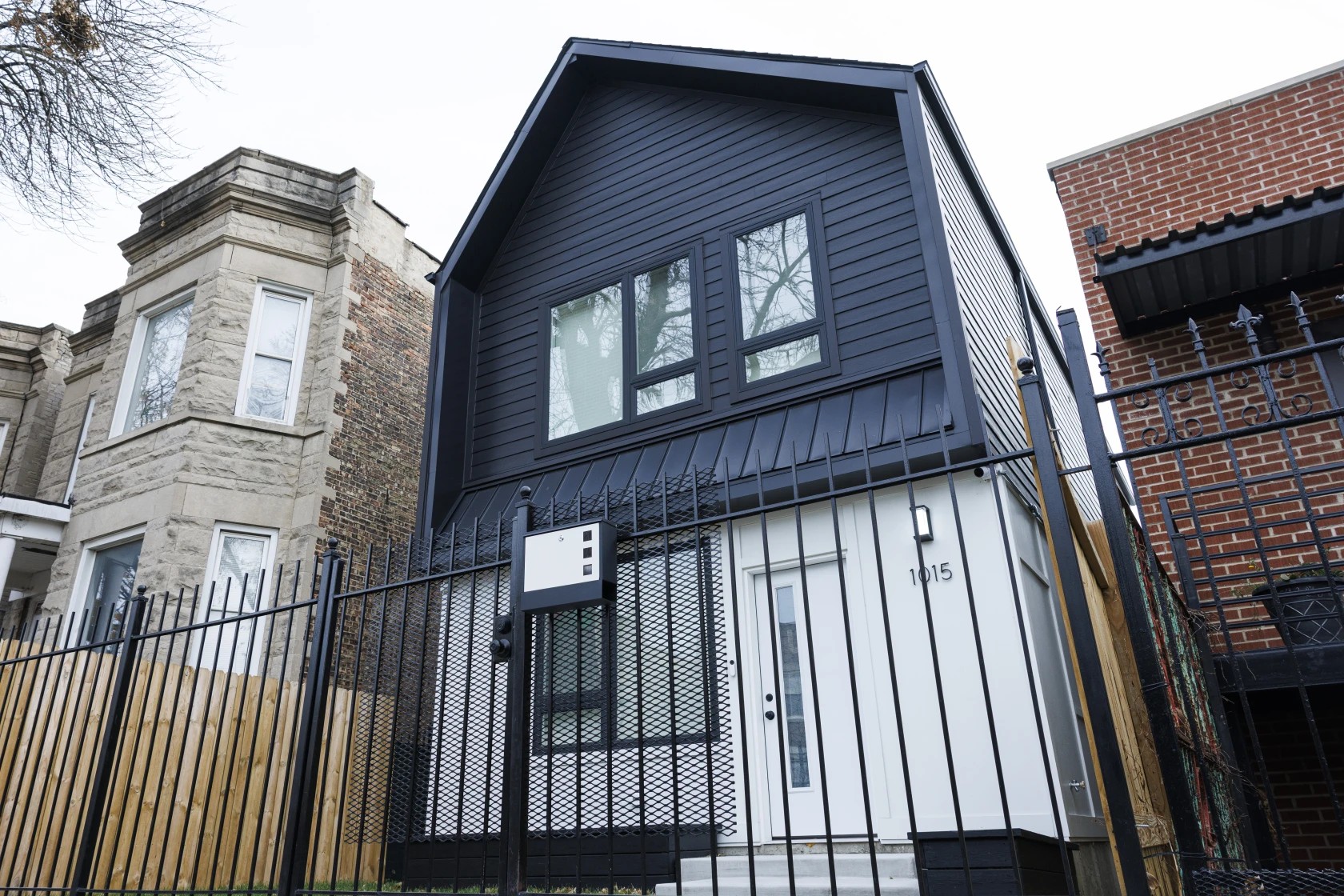Chicago Approves Landmark Effort To Boost Affordable Housing Near Transit And Stall Gentrification

Read the full article on Block Club Chicago
CHICAGO — A sweeping housing effort officials say will help fight segregation, boost affordable housing on the South and West sides and slow displacement in gentrifying neighborhoods was approved by City Council Wednesday.
The “Connected Communities” ordinance includes provisions aimed at creating more affordable housing near mass transit, getting affordable developments in front of City Council faster, limiting where multi-unit buildings can replace single-family homes and more.
The ordinance was introduced last month after being drafted by Mayor Lori Lightfoot’s Housing Department. A watered-down version was approved Wednesday in a 36-10 vote.
One of the signature features of the bill is expanding the city’s transit-oriented development program, meant to spur more affordable housing near public transit hubs.
Transit-oriented developments can currently be built within a two-block radius of train stations. The ordinance expands that distance to four blocks.
The bill also allows developers to build fewer parking spaces in new buildings within a certain distance from CTA and Metra stations, as well as certain popular bus lines.
The bill also strengthens affordable requirements for new transit-oriented buildings and limits developers to one parking spot for every two residential units in new buildings near train stations.
Affordable housing advocates and developers across the city have praised the expansion of the program, saying it will encourage developers to build more affordable units and increase neighborhood density.
“It’s only been as of late that we’ve really seen more transit-oriented developments that are either 100 percent affordable or have great affordability in them. And I think policies that really promote affordability, provide for greater density around transit nodes, that to me, makes sense,” said Joy Aruguete, CEO of Bickerdike Redevelopment Corporation, which manages more than 1,000 units of affordable housing on Chicago’s Northwest Side.
Bickerdike recently opened the Lucy Gonzalez Parsons Apartments, an all-affordable transit-oriented development next to the Logan Square Blue Line station.

But some aldermen bristled at the inclusion of a provision in the bill that threatens one avenue of aldermanic prerogative, the informal practice that has typically allowed City Council members final say in zoning and other matters in their ward.
The legislation requires any affordable housing project proposed in a wealthier area to receive an up or down zoning committee vote within a year.
That led Ald. Brian Hopkins (2nd) to vote against the bill in committee and at City Council Wednesday.
“I don’t know why you would include this poison pill. It’s just, it’s so objectionable, it is not a precedent that we want to set. It is not a responsible way to govern,” Hopkins said. “And I don’t want to start opening the door where committees of this City Council will be forced to take votes on an artificial timeframe.”
Since transit-oriented development was introduced in Chicago in 2013, a vast majority of such buildings have been built on the North Side, Downtown or West Loop, officials said.
“Ninety percent of [TOD] were not on the South and West sides, where we know that we also have ample train, Metra and bus service,” housing commissioner Marisa Novara said during a zoning committee meeting Tuesday.
Officials hope the extension of incentives will allow more flexibility for developers to save money on parking spaces and garages, making it cheaper for projects to proceed.
The ordinance also moves to include more bus lines in the program, which housing officials argue will help expand development to areas not immediately served by train stations, common in parts of the South and West sides.
South Side affordable housing developer Leon Walker praised the bill at the zoning meeting, arguing it helps lower barriers for developers eyeing new projects.
“This ordinance helps promote density and provides a path to lower parking requirements in these developments,” said Walker, a managing partner at DL3 Realty, which is behind developments like Englewood Square.
“For me and for many others, who we are trying to encourage to get into development, community development in their own communities, this brings a level of certainty,” he said. “The timelines, the understanding of how a development can be executed in a cost efficient, yet high quality manner, needs to happen.”

Under the ordinance, developers or land owners must request a zoning change if they want to build a single-family home in Logan Square and other gentrifying communities that are zoned for multifamily housing.
These provisions will ultimately usher more affordable housing into neighborhoods that need it the most, proponent Ald. Daniel La Spata (1st) said.
“It used to be that developers could pick and choose what they wanted TOD to mean. Do I want it just to be added density? Or do I just want it to mean smaller units? Or do I want to have a lot of parking or no parking? We essentially left it up to a developer to define TOD for themselves. Now we’re putting stronger guardrails up,” La Spata said.
Still, La Spata said he would’ve liked the policy “to move further” when it comes to preserving two- and three-flats in wealthier, transit-rich communities like Logan Square. A provision allowing for three-flats in those areas was stripped from this ordinance.
Traolach O’Sullivan, a housing organizer with Logan Square-based organization Palenque LSNA, said Logan Square has benefitted from the development pilot program, and this ordinance ensures other communities in need, particularly those on the South and West Sides, get that same opportunity.




